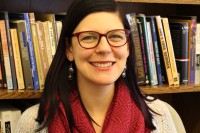Dignity is deeper than marriage equality
For no reason I can remember, I put the ’90s classic Four Weddings and a Funeral on my Netflix queue and re-watched it recently. The scene etched in my mind all these years was that of the funeral. John Hannah, with his beautiful Scottish accent, reads “Funeral Blues” by W. H. Auden:
What the clip leaves off is the funeral officiant, presumably an Anglican priest, introducing the beloved partner of the man in the coffin as “his closest friend.” The couple’s group of friends recognized the pair as “for all intents and purposes married,” and yet the pastor uses one of the phrases employed so often in real life to calm family tensions or other sources of discomfort, phrases that diminish the depth of commitment of same-sex couples. Such phrases are akin to leaving the name of a person's husband off of his death certificate. Such are the indignities that LGBTQ people have faced.
And will likely continue to face, despite the Supreme Court’s recent ruling, partly because there seem to be some questions about what dignity means and who gets to have it. Justice Kennedy’s majority opinion includes a line, among many that seem to have poetic aims, stating that gay and lesbian couples “ask for equal dignity in the eyes of the law.” I’m hardly qualified to comment on the legal reasoning, though I see the good sense in the argument that the ruling would have been better if it were based on gender discrimination. But I believe dignity is something all people already possess, not something they have to ask for.
For once I said an “amen” to Justice Thomas, who wrote in his dissent that “the Constitution contains no ‘dignity’ Clause, and even if it did, the government would be incapable of bestowing dignity. Human dignity has long been understood in this country to be innate.” Yet while it has long been understood this way in documents, nobody needs to tell Justice Thomas that many in U.S. history have failed to put that understanding into practice.
At the core of my ministry as a hospital chaplain is affirming the dignity of those who are at best made vulnerable and at worst treated like a problem to be solved or a specimen to be inspected. And so I’m convicted about same-sex couples receiving equal treatment when it comes to medical decision making and visiting family members, even if the health-care provider disapproves of their relationship. My vigilance in watching to make sure this happens increased after I heard from a gay man about disrespect he received in an ER where I had worked as a chaplain.
Whether or not those of us who can officiate weddings would do so for a same-sex couple—or are struggling with denominational requirements—we can all uphold the dignity of LGBTQ people, as individuals and in their families. Equal marriage may now be the law of the land, but some are seeking to continue treating same-sex couples as inferior, marriage license or no. Others are genuinely oblivious, hard as that may be to believe with today’s 24-7 news cycle, or confused about what the law means and which religious freedoms they do indeed have.
For many of us, this is a time of celebration. It is also a time of relief for those who have feared their children could be taken from them, or their partners shut out of life-or-death medical decisions. Let’s take celebrations of the Supreme Court's decision as food for the journey to keep struggling for all to be treated according to their innate dignity.






